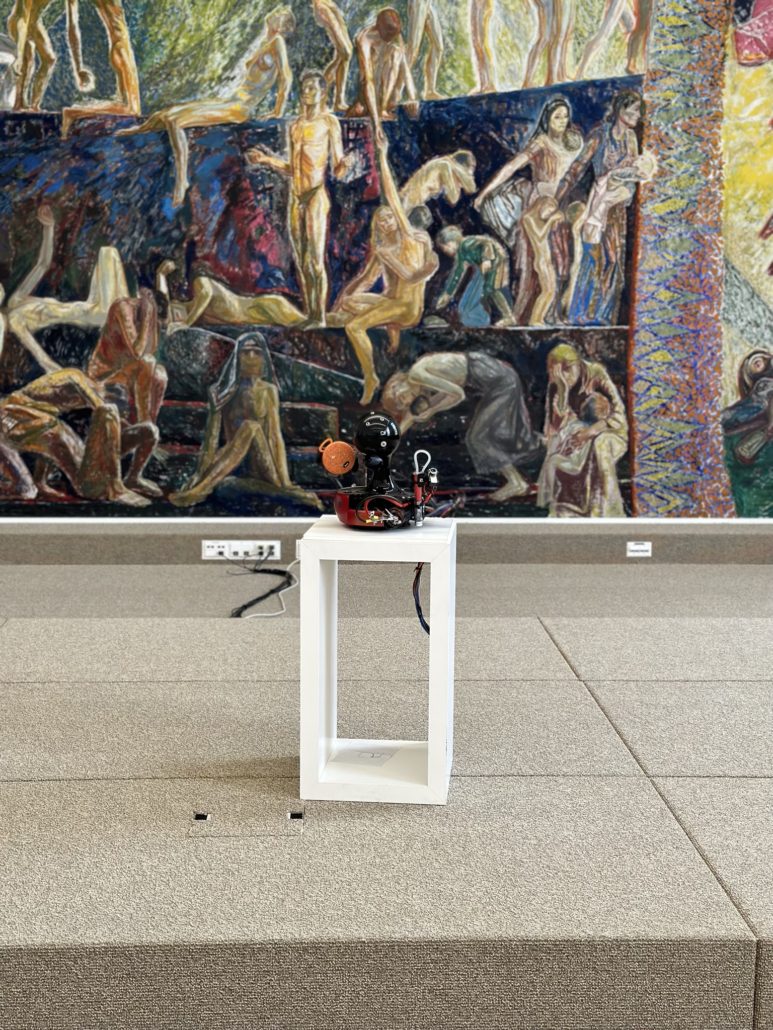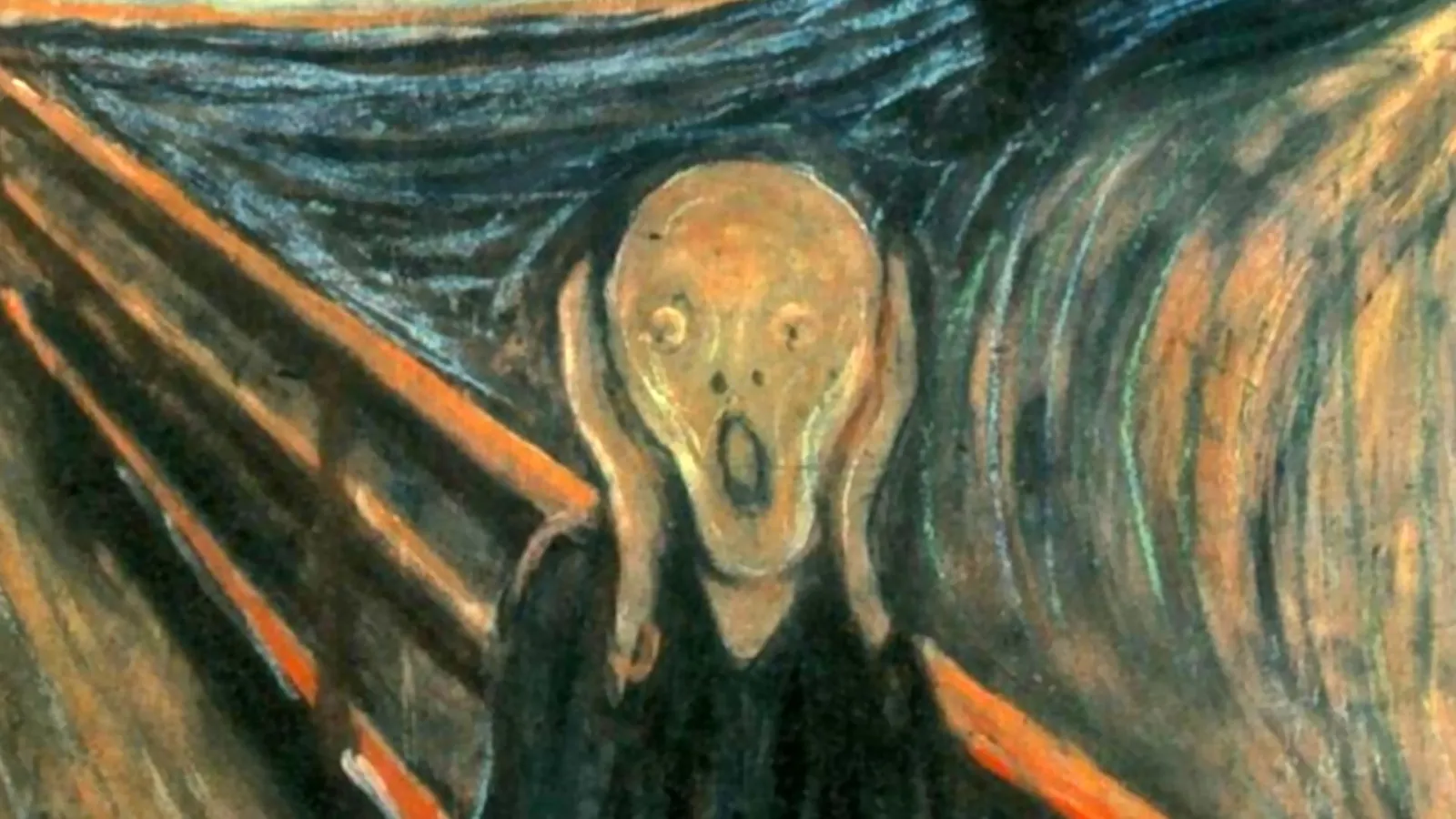During InnoVent 2, we saw a powerful visual message when Anja Djajic, Jovan Njegic, and IQ’whalo led a discussion on AI and the future of conferencing in front of the painting The Dream of Peace by Norwegian painter Henrik Sorensen.
Sorensen brought his painting to Geneva in 1939 when the world was sliding into the second world war. This painting shows a lot of misery, but there’s also hope. People climb a pyramidal structure in search of eternal light through knowledge. As a sign of hope, Sorensen draws four women coming from four corners of the world with their children. His symbolism is frightening, moving, and powerful. It is also reflective of our time.
During their presentation, Anja and Jovan also gave us hope that human ingenuity, with the help of machines, can climb this pyramid of enlightenment despite the oddities of our time.

First, the venue mattered. We spoke about AI and humanity in Geneva, a city of peace and international diplomacy. Geneva, like many times in history, faces numerous challenges today. Some of them stem from AI.
Second, we tried to avoid an anthropomorphic approach to AI by having the coffee machine act as our ‘spokesperson’. IQ’whalo is already four years old. It was born in 2019, ahead of the IGF in Berlin (link to presentation). It reminds us that AI should be seen as what it is. A tool, not a human being.

Read IQ’Whalo’s summary of the opening of InnoVent 2 here.
Third, we focused on AI at the centre of international meetings. We discussed how organisations could utilise AI models to improve their operations. We shared our experience with various AI models and the best models for text analysis and addressed the requirements for using AI within an organisation. We examined the impact of OpenAI’s release of the ChatGPT-4 language model and the subsequent responses from major tech companies such as Microsoft, Google, and Baidu.
The implications of the use of generative AI on the job market were discussed, with the conclusion that AI will not make most jobs redundant. Still, it will instead free up time for workers by taking repetitive and time-consuming tasks off their lists.
We also highlighted the importance of an augmented intelligence approach, stressing that AI should not replace humans but assist them and augment their creativity and productivity.
Discusison during InnoVent session triggered the following reflection text Can AI beat human intuition?
We presented and demonstrated our system for automated reporting, which takes the tedious task of manually summarising a meeting or conference, automatically creating a comprehensive summary report. We explained the main steps and features of the app and displayed the results, such as a summary report from an opening session.
We showcased Diplo’s Speech generator based on statements and transcripts from the IGFs and OEWGs, tackling cybersecurity issues. We highlighted the importance of text annotation and expert inputs – reinforcement learning from human feedback. Annotations and inputs help create a relevant and accurate speech that can be used to address a variety of cybersecurity issues.
Lastly, we tried to address the prevailing atmosphere of fear and shock as depicted by another Norwegian painter, Edvard Munch.

Edvard Munch, The Scream, 1893
Yes, the uncertainty that comes with the development and progress of AI and other new technologies scares and shocks us… But the only way to prevail in our tech-driven era is to dig deeper into our core humanity and creativity. These reservoirs are enormous, possibly endless, and largely untapped.
